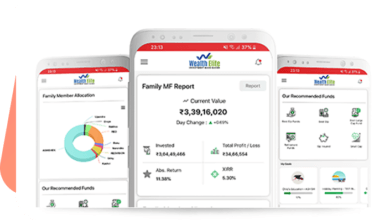The iGaming industry, particularly online casinos and sports betting platforms, has seen a remarkable surge in demand over the past decade. As the digital gaming world evolves, so too does the technology behind it, especially in the realm of payment systems. A crucial aspect of this is the iGaming payment gateway, which serves as the bridge between players and the platform, facilitating smooth and secure transactions.
For online casino operators, choosing the right payment gateway can significantly impact the overall user experience and business profitability. With multiple options available in the market, it’s essential to understand the different types of gaming payment gateway solutions, how they function, and what to consider when selecting the best one for your online casino business.
What is an iGaming Payment Gateway?
An iGaming payment gateway is a system that enables secure, fast, and seamless transactions between the online casino or gaming platform and its players. In simpler terms, it’s the digital service that facilitates the transfer of money to and from a gaming site. It integrates with various payment methods (credit cards, e-wallets, cryptocurrencies, etc.) and ensures that the payment process is safe and user-friendly.
For the iGaming industry, payment gateways must meet strict regulatory requirements, provide high-level security to prevent fraud, and support various payment options that players across the globe prefer. A gaming payment gateway provider must also have robust technology to process high volumes of transactions quickly and without errors.
Why is Choosing the Right Gaming Payment Gateway Important?
Selecting a suitable iGaming payment gateway for your online casino business is crucial for several reasons:
- Security: Payment fraud is a common issue in the online gaming industry. A secure payment gateway with encryption protocols and fraud detection features can prevent unauthorized transactions, safeguarding both the casino and its players.
- Payment Options: Different players prefer different methods of payment. Some might want to use traditional credit cards, while others prefer newer methods like e-wallets, cryptocurrencies, or even direct bank transfers. Offering a variety of options will enhance user satisfaction.
- Transaction Speed: Online casino players expect swift transactions. Whether it’s a deposit or a withdrawal, users expect their money to move quickly. A slow payment process can frustrate players and push them toward competitors.
- Regulatory Compliance: The gaming industry is highly regulated, with specific legal requirements in each jurisdiction. A reliable payment gateway will ensure compliance with the relevant laws, including anti-money laundering (AML) and know your customer (KYC) regulations.
- Scalability: As your online casino grows, your payment system needs to scale accordingly. A robust gaming payment gateway can handle a growing number of players and transactions without performance degradation.
- Customer Experience: The payment process is a key part of the customer experience. A smooth, hassle-free transaction process contributes significantly to customer satisfaction and retention.
Key Factors to Consider When Choosing an iGaming Payment Gateway
When evaluating gaming payment gateway solutions for your online casino, there are several factors to keep in mind:
1. Global Coverage and Multiple Currency Support
Given the global nature of online casinos, your payment gateway should support multiple currencies and have global reach. International players should be able to deposit and withdraw funds in their local currency without facing conversion fees. Ideally, the gateway should provide payment methods that are widely accepted in different regions—like Visa, Mastercard, PayPal, Skrill, Neteller, and cryptocurrencies like Bitcoin or Ethereum.
2. Fraud Prevention and Security
Security is a top priority when dealing with financial transactions. Look for a gaming payment gateway provider that offers robust fraud prevention tools, such as two-factor authentication (2FA), Secure Socket Layer (SSL) encryption, and tokenization. These technologies ensure that sensitive customer information, such as bank account details, is encrypted and stored securely.
Furthermore, check for features like real-time fraud monitoring and risk management tools that can detect suspicious activities and block fraudulent transactions before they happen.
3. Transaction Fees and Payout Rates
Understand the fee structure of the payment gateway. Some providers charge setup fees, monthly fees, and transaction fees that can add up quickly. Additionally, some payment methods may have higher fees than others. Compare the costs associated with different payment processors and determine which one offers the best balance between low fees and quality service.
You should also evaluate the payout rates, which refers to how quickly your platform can process withdrawals. Players expect quick withdrawals, and delays can lead to negative reviews and a loss of business.
4. Mobile Compatibility
As mobile gaming continues to rise, it’s essential that your payment gateway supports mobile transactions. Look for a payment system that is fully compatible with both Android and iOS devices, ensuring players can easily deposit and withdraw funds using their smartphones or tablets.
5. Integration with Other Casino Software
The iGaming payment gateway should integrate smoothly with your existing casino software, gaming platform, and sportsbook (if applicable). This ensures seamless communication between the payment system, the game engine, and your backend operations.
For example, if you’re running a sportsbook in addition to your casino, a gaming payment gateway should integrate seamlessly with your sports betting API system to enable smooth and fast transactions for betting users.
6. Customer Support
A reliable payment gateway provider should offer 24/7 customer support. Since online casinos operate at all hours, having access to quick and knowledgeable support can save you time and prevent potential issues from escalating.
Also Read – Top Trends in Soccer Betting Software Development to Watch in 2025
Popular Payment Methods in iGaming
To meet the diverse needs of online players, a good gaming payment gateway should support a variety of payment methods, including:
- Credit and Debit Cards: Traditional methods like Visa, Mastercard, and American Express are widely used in the iGaming industry.
- E-Wallets: Platforms like PayPal, Skrill, Neteller, and ecoPayz are popular among players for their ease of use and speed of transactions.
- Bank Transfers: Though slower than e-wallets, bank transfers are still a trusted option, especially for large transactions.
- Cryptocurrency: With the rise of digital currencies, many online casinos are now accepting Bitcoin, Ethereum, and other cryptocurrencies as payment methods. Cryptocurrencies offer faster transactions and a higher degree of anonymity.
- Prepaid Cards: Cards like Paysafecard allow players to deposit funds without using a bank account or credit card, providing an extra layer of security.
Conclusion
In the competitive world of online casinos and sports betting, offering a seamless and secure payment experience is essential for both player satisfaction and business success. Selecting the right iGaming Payment Gateway is a critical decision that requires careful consideration of security, payment options, transaction speed, and scalability. By partnering with a reliable gaming payment gateway provider like Innosoft Group, operators can ensure that their players enjoy a smooth and safe payment experience, while the platform remains secure and compliant with regulatory standards.
With Innosoft Group’s expertise in sports betting API integration and advanced payment gateway solutions for the gaming industry, operators can focus on growing their business while leaving the technical details to trusted professionals.




